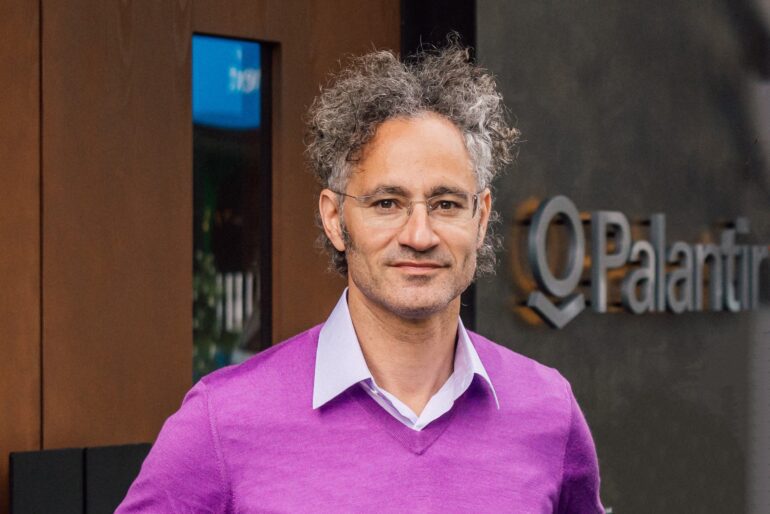- Palantir Technologies, led by CEO Alex Karp, adopts a unique sales strategy relying on software boot camps.
- These events blend elements of hackathons, conferences, and networking parties to showcase Palantir’s AI-driven solutions.
- Testimonials from satisfied customers and hands-on demonstrations by engineers fuel attendee enthusiasm and advocacy.
- Analysts expressed skepticism about the scalability of this approach, advocating for increased manpower in sales and marketing.
- Despite initial resistance to traditional sales methods, Palantir’s pivot towards commercial clients has driven significant revenue growth.
- Boot camps have played a pivotal role in this commercial expansion, with a 70% surge in US commercial sales revenue attributed to these events.
- Palantir plans to intensify its boot camp efforts, aiming for an average of five events daily, with engineers from Europe augmenting the team to meet high demand.
Main AI News:
In the realm of tech sales, Palantir Technologies Inc. has long been an outlier. CEO Alex Karp famously shunned the idea of a traditional salesforce, confident that their groundbreaking software, capable of organizing and analyzing vast amounts of data, would speak for itself. Yet, in today’s AI-driven market frenzy, the absence of a conventional sales team presents challenges as demand skyrockets.
Amidst this surge in interest, Palantir faces a conundrum: how to manage the deluge of potential customers clamoring for their AI solutions. “We’re overwhelmed by demand,” Karp admitted post-earnings call in February. But instead of yielding to the pressure and assembling a sales army, Palantir has innovated a unique strategy: the software boot camp.
These events, blending elements of hackathons, conferences, and networking parties, serve as platforms for showcasing Palantir’s technology. Attendees witness live demonstrations by engineers, engage in interactive sessions, and hear firsthand accounts from satisfied clients. It’s not just about selling a product; it’s about fostering a community where customers and engineers become advocates.
At a recent boot camp in Pontiac, Michigan, attendees experienced this synergy firsthand. Komatsu Mining Program Manager, Atticus Clark, lauded the transformative potential of AI to streamline tasks, citing it as a “game changer.” Observing such testimonials, Kevin Kawasaki, Palantir’s global business development head, remarked, “When people try our product, they wind up up there,” pointing to the stage.
Despite the prominence of boot camps in Palantir’s strategy, skeptics remain. Analysts like Malik Ahmed Khan question whether these events alone can sustain Palantir’s growth trajectory. “Right now, they need more manpower,” Khan asserts, advocating for a more aggressive sales and marketing approach.
Palantir’s journey from a Silicon Valley startup to a global AI powerhouse has been unconventional. Founded in 2003 with a mission to support intelligence agencies in the wake of 9/11, the company initially spurned traditional sales methods. It wasn’t until the brink of their IPO in 2019 that Palantir began embracing conventional sales practices.
The unveiling of their latest AI software has been met with investor enthusiasm. AIP, leveraging cutting-edge AI models, has propelled Palantir’s stock to unprecedented heights. With a market value surge of $12 billion in just six months, Palantir’s evolution from a government contractor to a commercial juggernaut seems imminent.
Central to Palantir’s commercial success is its ability to pivot towards corporate clients. While government contracts have been their mainstay, analysts predict that commercial revenue will soon surpass government sales. This shift underscores the significance of Palantir’s boot camps in driving commercial adoption.
Palantir attributes much of its recent commercial success to boot camps, citing a 70% surge in US commercial sales revenue. “We can’t do enough of them,” Karp remarked, likening the demand to a rock concert.
Looking ahead, Palantir plans to ramp up its boot camp initiatives, aiming for an average of five events daily. With engineers from Europe joining the fray to meet US demand, Palantir is doubling down on its commitment to evangelize its AI solutions.
As attendees at Pontiac’s boot camp attest, the impact is tangible. Komatsu Mining’s Clark, converted after attending a previous boot camp, now champions Palantir’s tools within his organization. “You can literally do anything with this,” he enthuses, reflecting the transformative potential of Palantir’s software boot camps.
Conclusion:
Palantir’s embrace of software boot camps as a cornerstone of its sales strategy marks a significant departure from traditional sales approaches. While skeptics question the scalability of this model, the company’s rapid commercial growth suggests that these events are effectively driving customer adoption and revenue. The success of Palantir’s boot camps underscores the growing importance of community-driven marketing initiatives in the competitive landscape of AI solutions.

